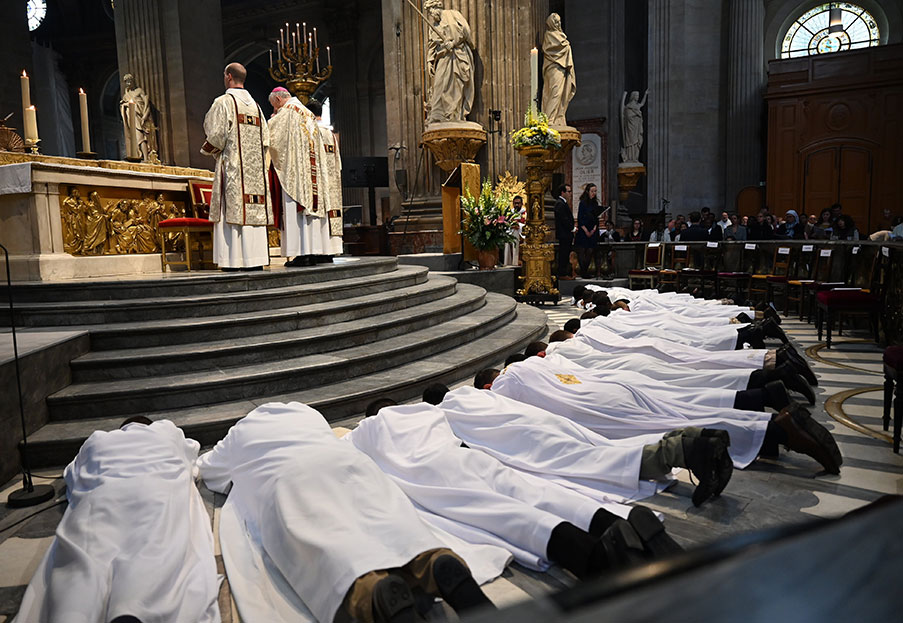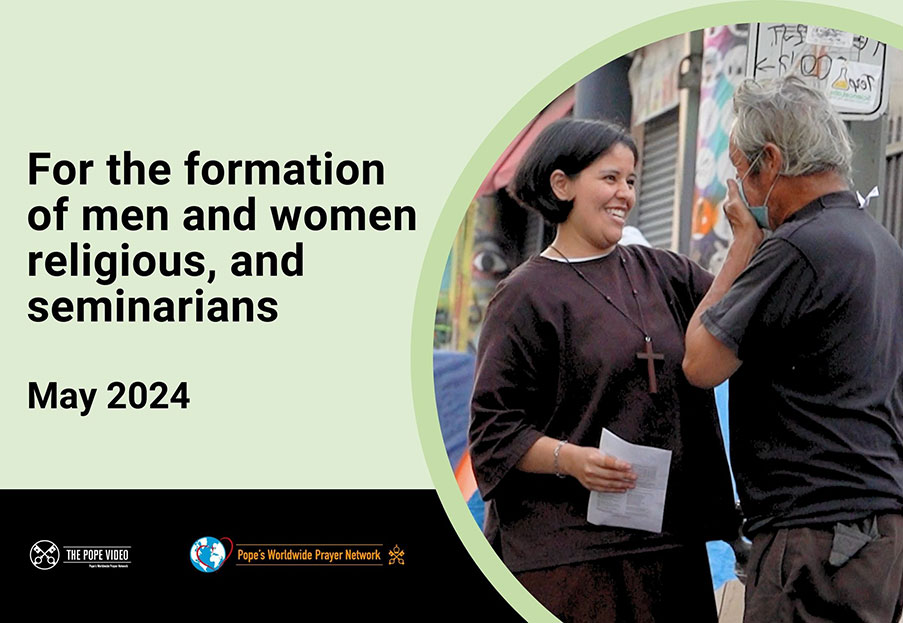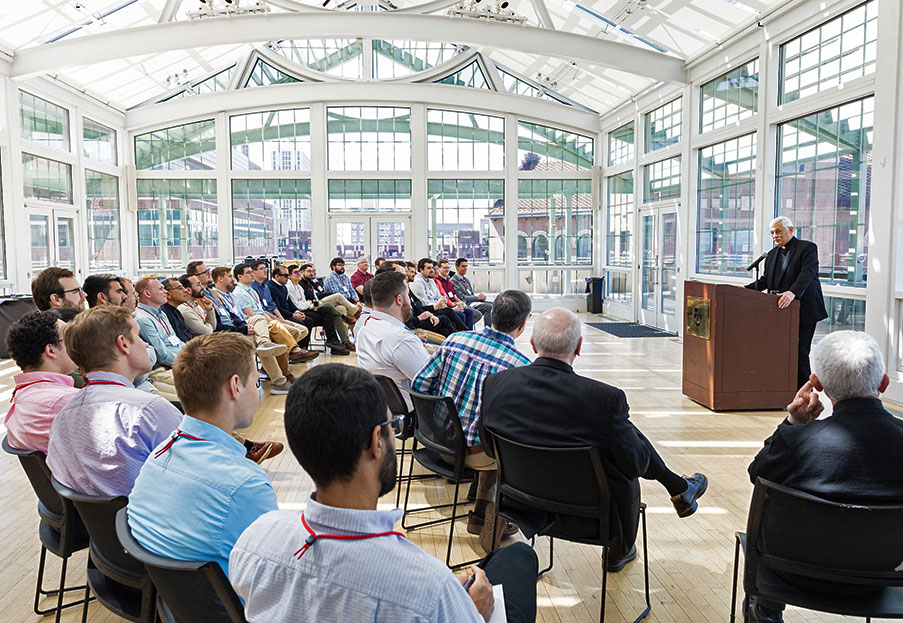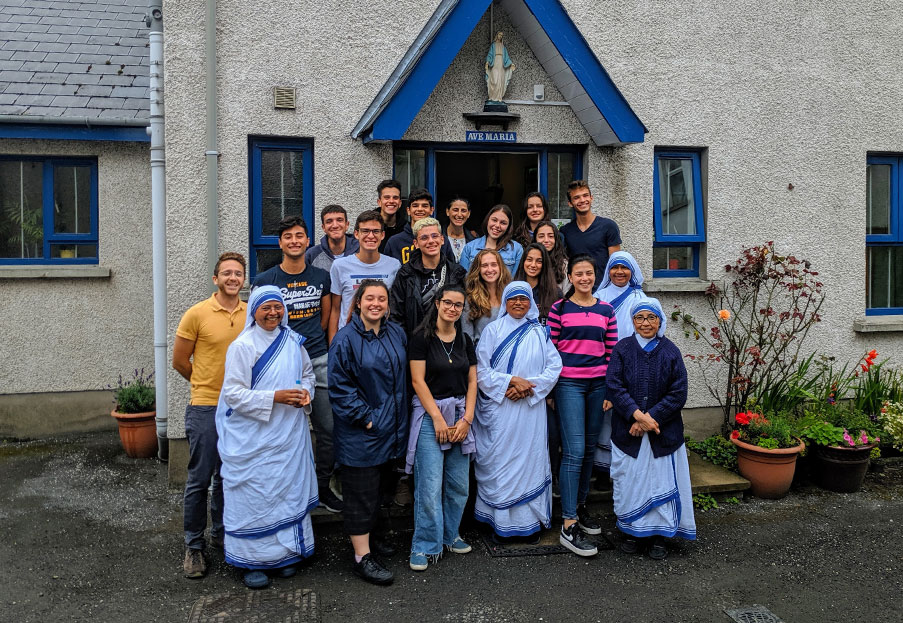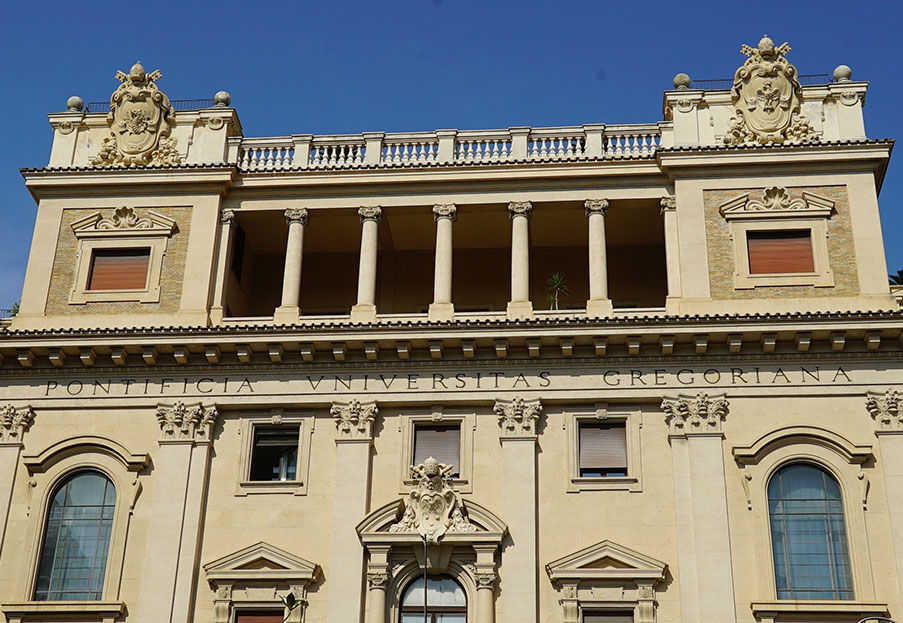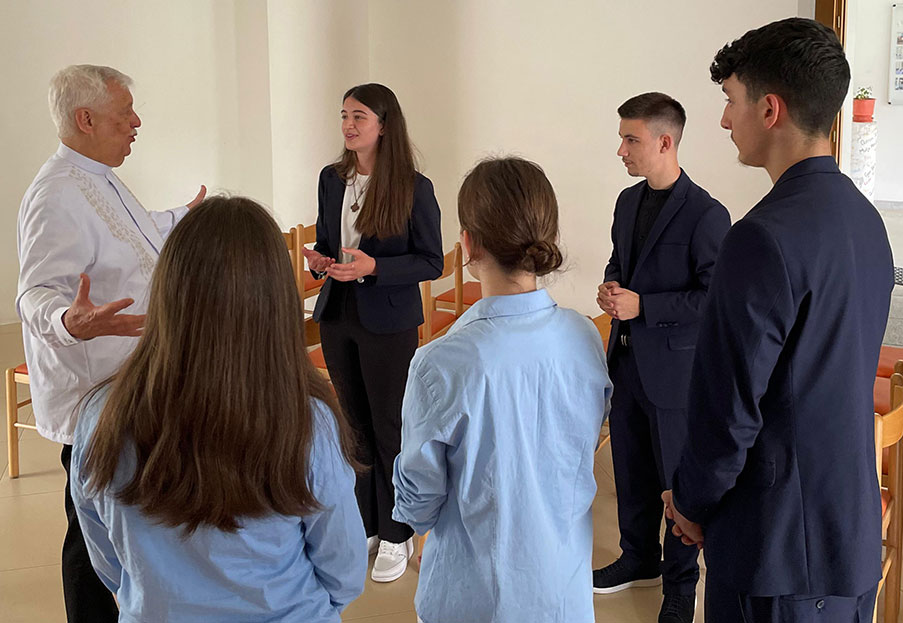Being a Jesuit deacon
We have already described the context of diaconal ordinations in the Society of Jesus (see article of 6 May). After studying theology for at least three years, Jesuit scholastics may be invited by their Provincial - after the Provincial has gathered some information about the candidate - to be ordained deacons. This is called the “transitional” diaconate because, for most Jesuits, it is a transitional stage towards priestly ordination, which often takes place about a year after the diaconate. The transitional diaconate is therefore distinct from the permanent diaconate, to which men - often married men - are called. The latter devote themselves in various ways to both sacramental services and other tasks that express the evangelical service according to the needs of the local Church, often among the poor.
We
asked some of the Jesuit deacons ordained this year to tell us what this step
meant to them. We published the testimonies of Sunny Costa, from Bangladesh,
ordained deacon in Rome, and Bùi Huy Đąt, Vietnamese ordained in Ho Chi Minh
City. Today, the testimonies of Guillermo Medina, a Mexican ordained in Bogotà
(Colombia) and Rivelt Silnéus, a Haitian ordained in Paris.
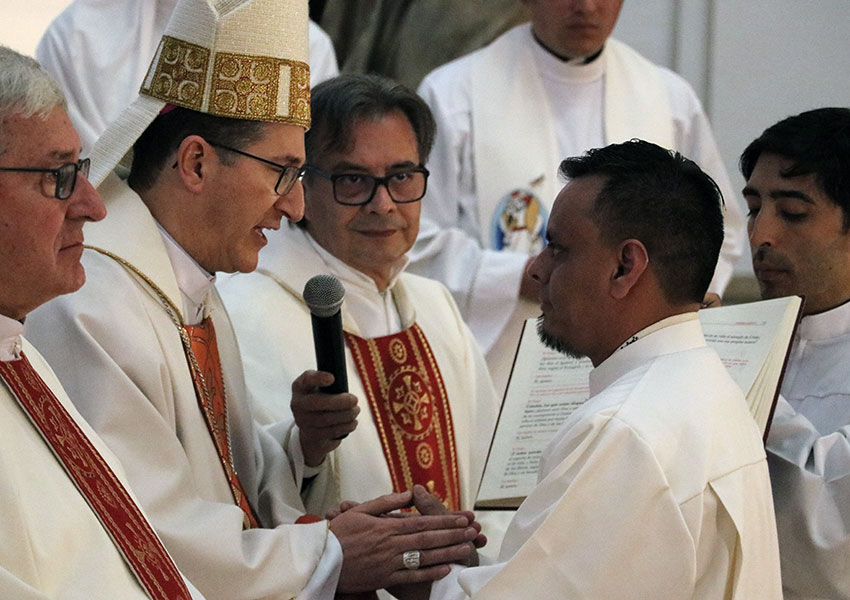
Guillermo Medina, SJ.
Guillermo Medina, SJ
I receive the ordination to the diaconate, first of all, as a gift from God. Then, I receive it as a vocational confirmation that has been going on during these years, but which does not end at this stage. Rather, it allows me to see the need for an authentic service to the people in the manner of Jesus, poor and humble.
At this stage of diaconal ministry, I feel called to walk alongside the people who suffer and who desire an ecclesial renewal without any manifestation of clericalism, something that does us a lot of harm. I want to live this stage rather in openness to dialogue and reconciliation, so necessary for our peoples in America and the world.
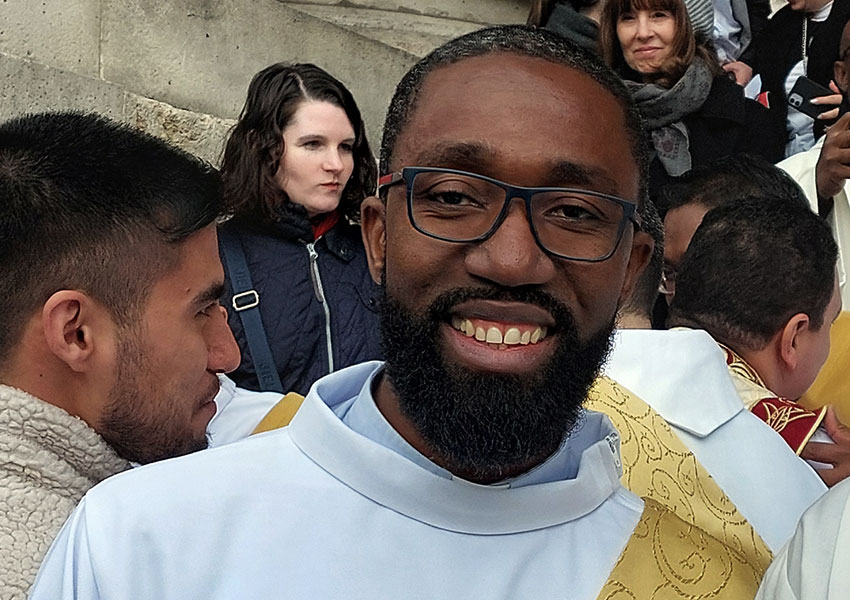
Rivelt Silnéus, SJ.
Rivelt Silnéus, SJ
Born in Camp-Perrin, in the south of Haiti, I grew up in a Catholic Christian family, where the faith transmitted to me has constantly enlightened my spiritual journey. Having received this faith, I became involved in the parish of my home town, where I learned to serve Christ and others. Today, as a transitional deacon in the Church, I feel happy to be able to continue to commit myself to the following of Christ.
Indeed, the key word in the experience of my ordination as a deacon on 20 April 2024 is: Grace. This new stage corroborates my sense of service and my first commitments in the Church and in the Society of Jesus as an ordained minister. I illustrate it with Peter’s experience when the Risen Lord asked him if he loved him and entrusted him with the task of being the shepherd of his flock (John 21:15). A mission that I hope, with God’s grace, to take on with great inner freedom. In this way, this ordination to the diaconate is a response to the call of Jesus, who chose me to go and bear fruit among his people, and who invites me to dwell in the Father (Jn 15:16).
I recognise that this mission is fraught with responsibility, but I accept it with all my limitations “for when I am weak, that is when I am strong” (2 Cor 12:10), because my faith in God is my awareness of the need for his presence in my life and in my Jesuit journey. In summary, my ordination to the diaconate, for which I thank the Lord, has rekindled in me the burning desire to continue to be taught by Christ in the service of others.
